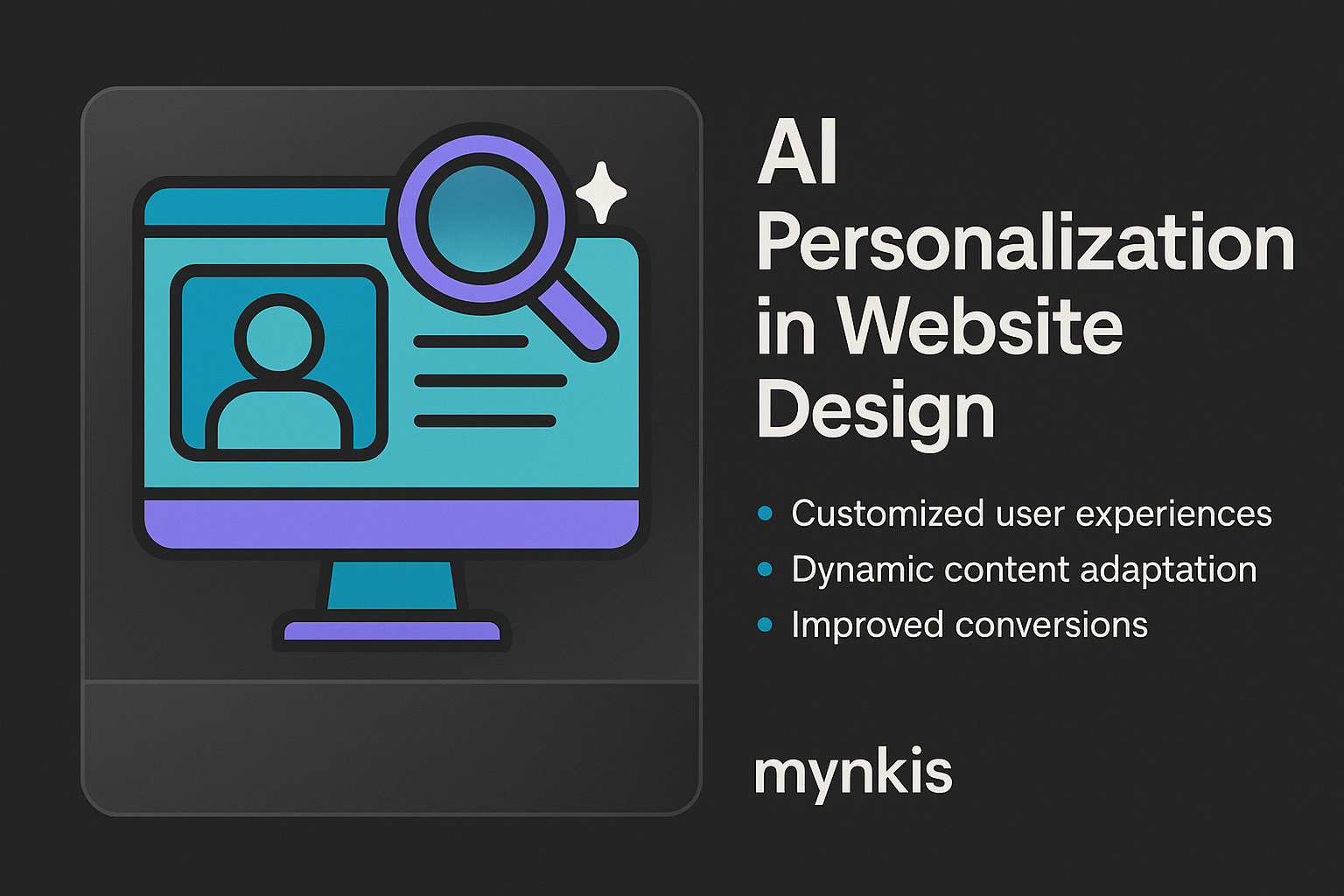Schedule a Demo
In the realm of digital marketing, personalization isn't just a buzzword; it's a necessity. As business owners and C-level executives, you're constantly seeking ways to engage more effectively with your audience. AI in website design offers a groundbreaking solution. By tailoring user experiences to individual preferences and behaviors, AI can dramatically enhance your online presence and drive organic growth through SEO.
AI-driven personalization in website design involves using machine learning algorithms to analyze user data and adjust the website's content and layout dynamically. This technology goes beyond static web pages to offer dynamic content that evolves based on user interactions. From personalized product recommendations to adaptive layouts based on user behavior, AI ensures that each visitor has a unique experience tailored to their interests.
I've worked with numerous businesses where implementing AI has led to significant improvements in user engagement. For example, one client saw a 30% increase in session duration after integrating AI algorithms to display content relevant to user's previous interactions.
How does AI personalize a website? It starts with data collection. Every click, scroll, and interaction is tracked to build a comprehensive profile of user behavior. This data is then analyzed to identify patterns and preferences, allowing AI to predict what content or layout will resonate most with each visitor. Furthermore, AI can implement these changes in real-time, ensuring that the user experience is constantly optimized.
Consider the power of recommendation engines. These are powered by AI algorithms that suggest products or content based on past user behavior. For e-commerce sites, this means higher conversion rates and customer satisfaction. In content-heavy websites, it means higher reader engagement and return visits.
The integration of AI in website design does more than just enhance user experience; it also boosts SEO performance. By understanding user intent and behavior, AI can optimize content dynamically to match search queries more effectively. This results in higher relevance scores, better rankings, and ultimately, increased organic traffic. Studies from organizations like Moz and Search Engine Journal indicate that AI-driven SEO techniques can increase organic search traffic by up to 20%.
Engagement is the lifeblood of any online presence. AI helps by showing users content they're more likely to engage with, reducing bounce rates and increasing time on site. As someone who's seen this firsthand, I can tell you that the difference in user engagement between a static site and an AI-optimized one is like night and day.
Let's look at some real-world applications of AI in website design. Netflix, for example, uses AI to personalize the user interface and recommend content, significantly boosting user satisfaction and retention. Similarly, Amazon uses AI to tailor product suggestions and even alter the layout of the page based on user behavior. These companies have set the standard, showing how powerful personalized experiences can be for business growth.
Smaller businesses have also benefited from AI personalization. One boutique I worked with implemented AI to show users items based on their browsing history and regional trends. The result? A 15% increase in conversion rates and a noticeable boost in customer loyalty.
Integrating AI into your website isn't without its challenges. Privacy concerns are paramount, as users are increasingly wary of how their data is used. Transparency about data collection and AI usage is crucial to maintain trust. Additionally, the technical setup can be complex, requiring specialized skills to implement AI algorithms effectively.
However, these challenges are surmountable. By partnering with experienced web developers and using AI responsibly, businesses can leverage the power of personalization while maintaining ethical standards.
Looking ahead, AI in website design is set to become even more sophisticated. We're seeing trends like predictive user paths, where AI not only reacts to user behavior but also predicts and guides users towards the content or products they're most likely to be interested in. Additionally, voice and visual search capabilities integrated with AI are changing how users interact with websites, pushing for more intuitive and seamless experiences.
The future is personalized, and AI is at the forefront of this revolution. As a business owner or C-level executive, embracing AI can position you as a leader in your industry, providing your audience with experiences that are not only engaging but also incredibly relevant to their needs and interests.
While the possibilities are vast, it's important to remember that AI is a tool, not a solution in itself. The success of AI integration in website design hinges on a clear understanding of your business goals and user needs. With these in mind, the journey towards a more personalized, engaging, and SEO-friendly website is not just promising but potentially transformative.
